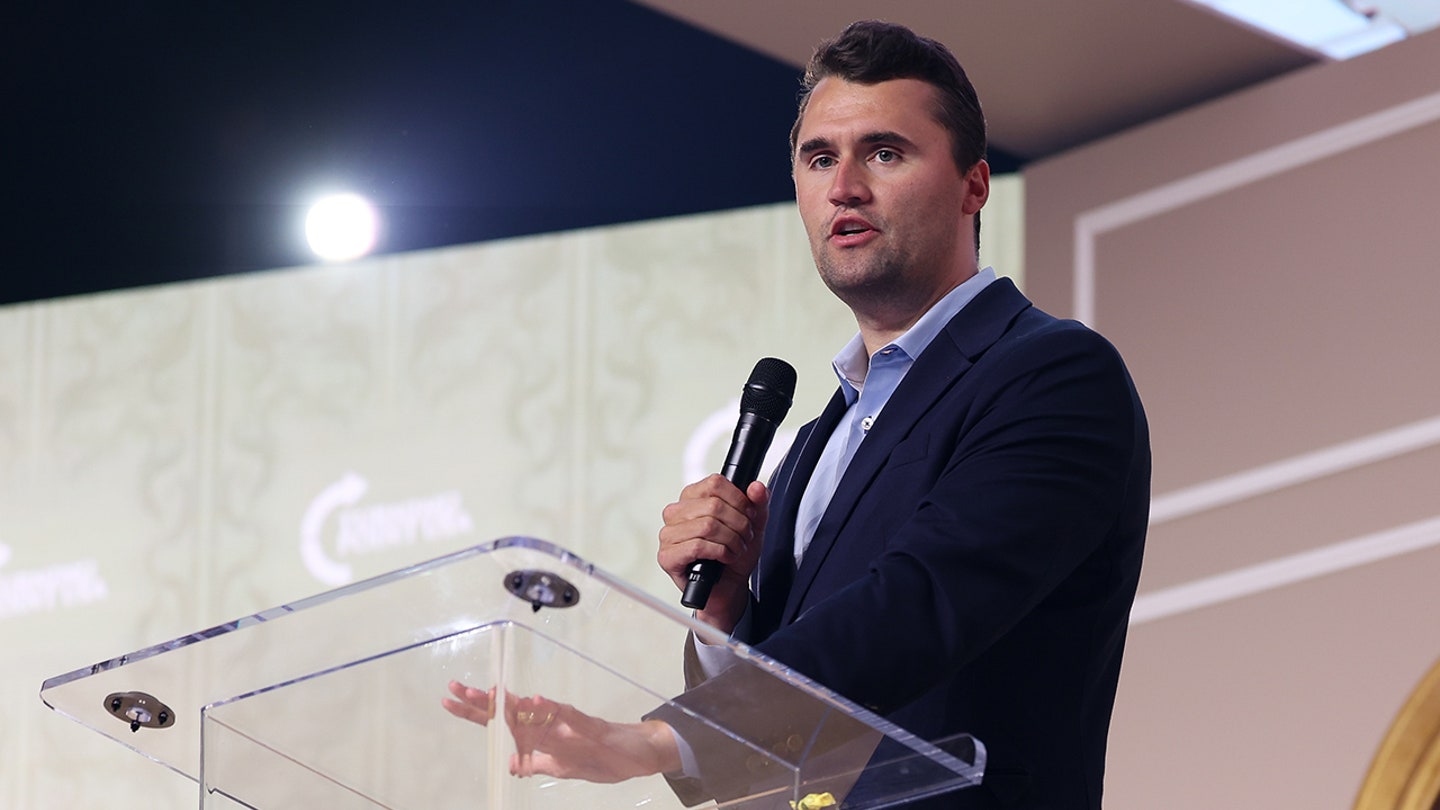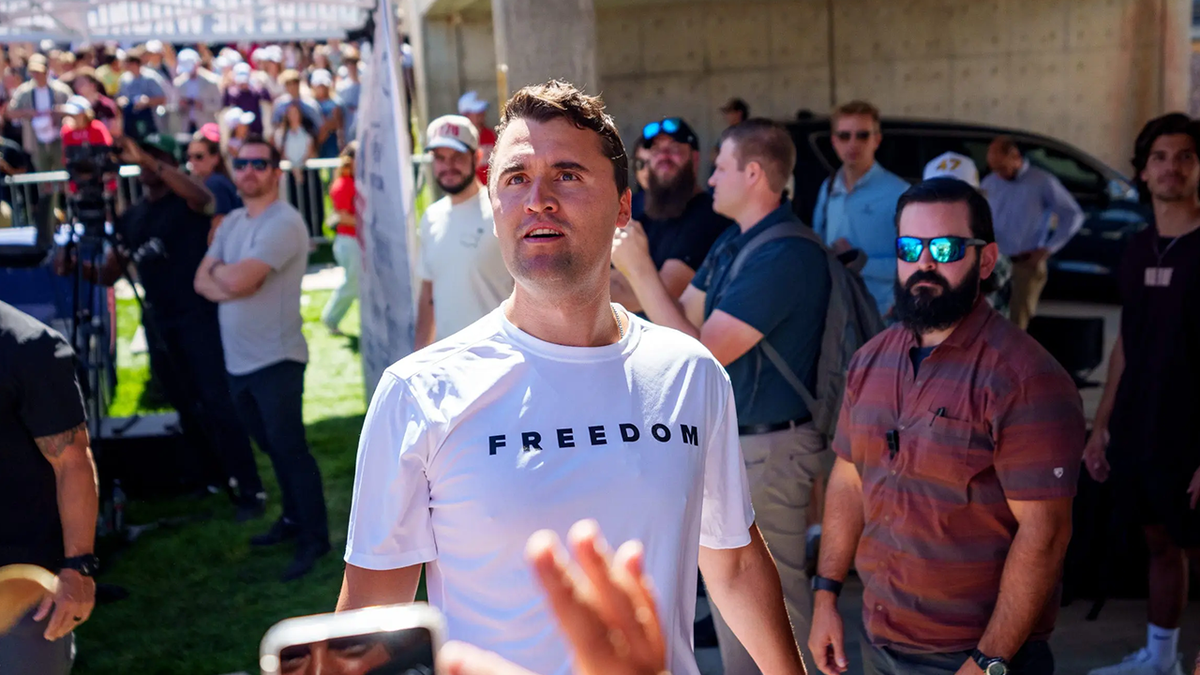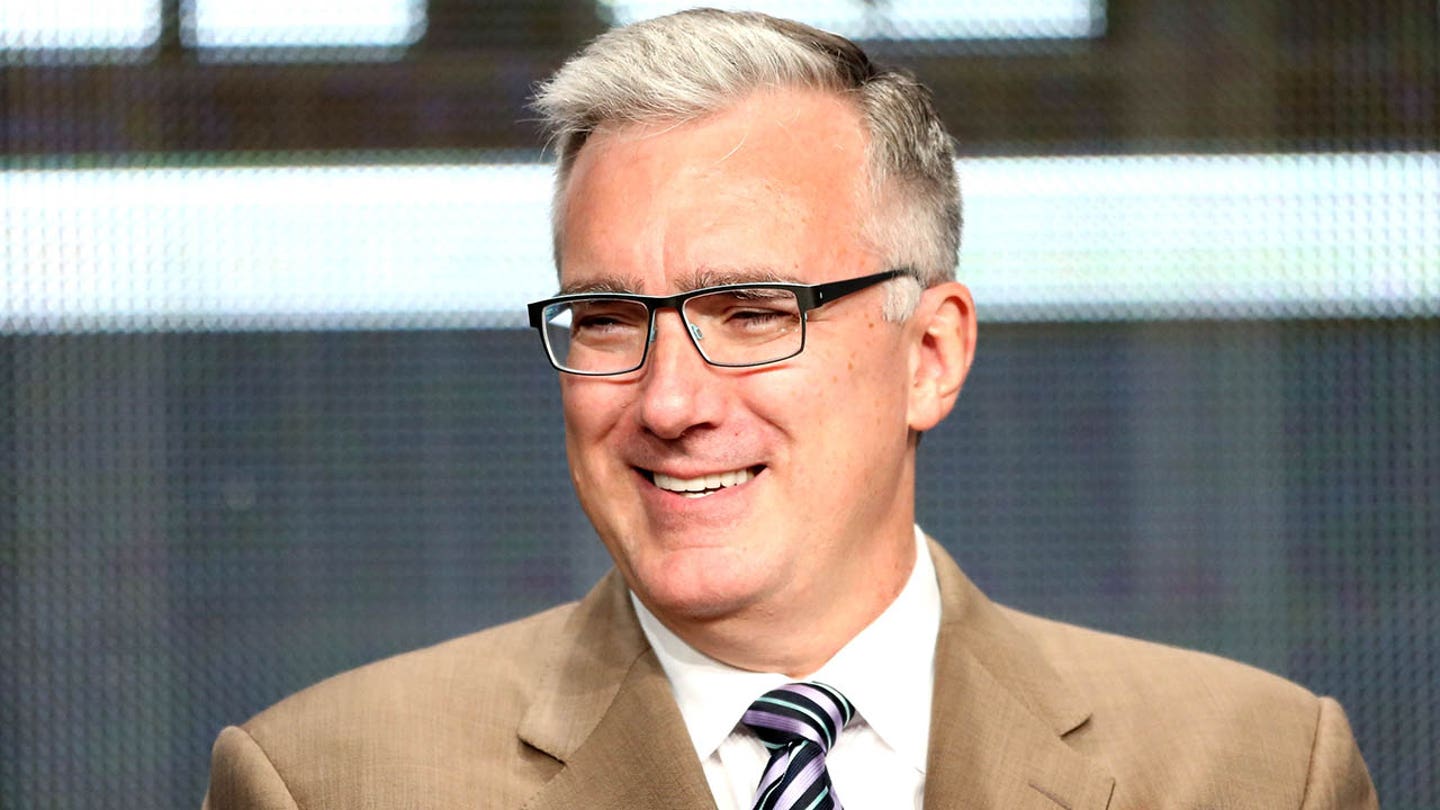
Commanders fans face backlash for booing Trump during US military ceremony
Entities mentioned:
- Washington Commanders fans: Moral outrage, Indignation, Self-respect
- President Donald Trump: Power, Recognition, Influence
- NFL: Patriotism, Professional pride, Unity
- Amon-Ra St. Brown: Competitive spirit, Recognition, Self-expression
- Mark Clouse: Professional pride, Duty, Unity
Article Assessment:
Credibility Score: 70/100
Bias Rating: 55/100 (Center)
Sentiment Score: 35/100
Authoritarianism Risk: 40/100 (Generally Democratic)
Bias Analysis:
The article presents multiple perspectives, including both positive and negative reactions to Trump's presence. However, there's slightly more focus on the controversy and negative reactions, balancing out to a near-center position.
Key metric: Political Polarization Index
Let me tell you something, folks - this game just took an unexpected turn! The Washington Commanders' home turf became a political gridiron as fans went on the offensive, unleashing a barrage of boos at President Trump. It's like we're watching two teams with completely different playbooks! On one side, we've got the Commanders organization trying to run a patriotic play, honoring our troops. But some fans are calling an audible, using their home field advantage to voice their opposition. This is the kind of divided locker room that can really shake up team morale! Meanwhile, Lions' wide receiver Amon-Ra St. Brown is out there turning political moves into end zone celebrations. I'm telling you right now, this is the kind of fourth-quarter drama that could impact the entire league's unity strategy. The NFL's trying to coach a game of national unity, but it looks like some players aren't sticking to the game plan. This is RIDICULOUS, folks! We're seeing a real test of the league's leadership skills as they try to navigate this political playing field without fumbling their patriotic image.

LSU women's basketball star questions gov's push for school to erect statue of Charlie Kirk
Entities mentioned:
- Flau'jae Johnson: Justice, Self-respect, Righteousness
- Gov. Jeff Landry: Power, Influence, Ambition
- Charlie Kirk: Legacy, Influence, Recognition
- LSU: Obligation, Professional pride, Unity
Article Assessment:
Credibility Score: 70/100
Bias Rating: 55/100 (Center)
Sentiment Score: 35/100
Authoritarianism Risk: 40/100 (Generally Democratic)
Bias Analysis:
The article presents both viewpoints, quoting directly from Johnson and Landry. However, it leans slightly right by giving more context to the conservative event and Kirk's background.
Key metric: Political Polarization Index
Let me tell you something, folks - this is a CLASH OF TITANS on the political playing field! We've got LSU basketball star Flau'jae Johnson coming off the bench with a POWER MOVE, challenging the governor's game plan like a true champion. Governor Landry is trying to run a statue play for Charlie Kirk, but Johnson's defense is ROCK SOLID. This is fourth quarter politics, and the stakes couldn't be higher! Johnson's not just dribbling around the issue - she's taking it straight to the hoop with a slam dunk statement on discrimination. Meanwhile, Landry's trying to control the court with his Turning Point USA event, but Johnson's not falling for any fake-outs. This is the kind of political athletics that keeps fans on the edge of their seats, folks! The real question is: who's got the championship mentality to come out on top in this freedom of speech showdown?

Controversial UFC fighter takes back his Trump support in wild rant: 'I was fooled'
Entities mentioned:
- Bryce Mitchell: Moral outrage, Righteousness, Indignation
- Donald Trump: Power, Influence, Legacy
- Elon Musk: Ambition, Influence, Recognition
Article Assessment:
Credibility Score: 65/100
Bias Rating: 55/100 (Center)
Sentiment Score: 30/100
Authoritarianism Risk: 35/100 (Generally Democratic)
Bias Analysis:
The article presents both Mitchell's previous and current views on Trump, showing some attempt at balance. However, the focus on controversial statements and religious references may slightly skew perceptions.
Key metric: Political Polarization Index
Ladies and gentlemen, we've got a SHOCKING REVERSAL in the political octagon! Bryce Mitchell, once a die-hard Trump supporter, has just executed a stunning takedown on the former president. This is a game-changing move that's sending shockwaves through the political arena! Mitchell's gone from being Trump's MVP to calling him the Antichrist - talk about a fourth-quarter twist! This fighter's new stance is like a knockout punch to Trump's base. We're seeing a major shift in the playbook here, folks. Mitchell's pulling no punches, accusing Trump of dropping the ball on key plays like the Epstein files and putting America on the bench. This is the kind of momentum swing that can turn the whole match around! Trump's team will need to huddle up and find a way to counter this unexpected offensive if they want to stay in the game. Remember, in politics just like in sports, it's not over till the final whistle blows!

Golf legend Phil Mickelson takes subtle jab at Biden administration in 'No Kings' day post
Entities mentioned:
- Phil Mickelson: Competitive spirit, Influence, Loyalty
- Joe Biden: Power, Control, Legacy
- Donald Trump: Ambition, Power, Recognition
- Glenn Youngkin: Control, Security, Duty
- Mike Johnson: Competitive spirit, Determination, Power
Article Assessment:
Credibility Score: 65/100
Bias Rating: 70/100 (Lean Right)
Sentiment Score: 35/100
Authoritarianism Risk: 45/100 (Mixed/Neutral)
Bias Analysis:
The article leans right, focusing on conservative figures and framing protests negatively. It gives more space to Republican viewpoints and criticisms of the Biden administration.
Key metric: Political Polarization Index
Let me tell you something - this story is RIDICULOUS! We're seeing a championship-level clash between political heavyweights, folks! Golf legend Phil Mickelson is stepping up to the plate, taking a swing at the Biden administration with a social media fastball that's got everyone talking. This is like watching a high-stakes playoff game, with Mickelson playing offense for Team Trump against Team Biden's defense. The 'No Kings' protests are like a massive halftime show, but don't be fooled - this is just a distraction play while the real game is happening in the locker room of government shutdown negotiations. Speaker Johnson is trying to coach his team through this, but it's looking like a political Hail Mary at this point. I'm telling you right now, this is the kind of fourth-quarter drama that keeps fans on the edge of their seats!

Turning Point USA calls for NBA employee to be fired for crude remarks about Charlie Kirk's assassination
Entities mentioned:
- Turning Point USA: Justice, Righteousness, Indignation
- NBA: Self-preservation, Professional pride, Control
- Charlie Kirk: Legacy, Influence, Ambition
- NBA Employee: Moral outrage, Indignation, Self-expression
Article Assessment:
Credibility Score: 70/100
Bias Rating: 65/100 (Lean Right)
Sentiment Score: 25/100
Authoritarianism Risk: 35/100 (Generally Democratic)
Bias Analysis:
The article leans right, focusing on the conservative perspective and framing the NBA employee negatively. It primarily presents TPUSA's side, with limited context on opposing viewpoints.
Key metric: Political Polarization Index
Let me tell you something, folks - this story is a FULL COURT PRESS of controversy! We're seeing a real clash of titans here, with Turning Point USA charging down the court, demanding the NBA step up its defense and eject a player from the game entirely. The NBA's current strategy? A two-week suspension - but that's like trying to win a championship with just a free throw, people! This employee's social media fumble has turned into a political football, and now we're watching to see if the NBA has the guts to make the tough call and send this player to the showers for good. It's fourth quarter, the clock is ticking, and the pressure is ON! Will the NBA buckle under the full-court press from TPUSA, or will they dig in their heels and defend their own? This is the kind of high-stakes play that can make or break a season, folks! The political arena is as charged as any playoff game right now, and I'm telling you, this is the kind of move that separates the champions from the also-rans!

NBA suspends employee who made crude remarks following Charlie Kirk assassination
Entities mentioned:
- NBA: Professional pride, Control, Self-preservation
- NBA Employee: Moral outrage, Indignation, Self-expression
- Charlie Kirk: Influence, Legacy, Righteousness
- Donald Trump: Legacy, Power, Recognition
- Turning Point USA: Competitive spirit, Influence, Recognition
- NFL: Professional pride, Control, Recognition
Article Assessment:
Credibility Score: 70/100
Bias Rating: 65/100 (Lean Right)
Sentiment Score: 30/100
Authoritarianism Risk: 35/100 (Generally Democratic)
Bias Analysis:
The article leans right due to its focus on conservative figures and reliance on right-leaning sources like Fox News and OutKick. However, it does present some factual information from the NBA directly.
Key metric: Political Polarization Index
Folks, we're witnessing a MAJOR FOUL on the court of public discourse! The NBA, usually a slam-dunk when it comes to PR, just air-balled with this employee situation. Let me tell you something - this is a GAME-CHANGING moment! The league is playing defense, trying to protect its brand from a rogue player who went way out of bounds with their comments. It's like they're in the fourth quarter, down by 20, and desperately need to rally. The suspension is their Hail Mary pass, but will it be enough to win back the crowd? Meanwhile, Turning Point USA is making a bold offensive play, going head-to-head with the NFL in a Super Bowl showdown. This is the kind of high-stakes competition that separates the champions from the benchwarmers, folks! The political arena has become a full-contact sport, and these players are leaving it all on the field. I'm telling you right now, we're in for one heck of a matchup!

WNBA player Natasha Cloud calls out Israel on Oct 7 while blaming Republicans for government shutdown
Entities mentioned:
- Natasha Cloud: Moral outrage, Righteousness, Influence
- Republicans: Power, Control, Self-preservation
- Democrats: Competitive spirit, Justice, Unity
- Donald Trump: Power, Control, Pride
Article Assessment:
Credibility Score: 65/100
Bias Rating: 70/100 (Lean Right)
Sentiment Score: 30/100
Authoritarianism Risk: 45/100 (Mixed/Neutral)
Bias Analysis:
The article leans right, focusing heavily on critiquing Cloud's left-leaning statements and providing more space for conservative viewpoints. It includes fact-checking that counters Cloud's claims but doesn't equally scrutinize Republican positions.
Key metric: Political Polarization Index
Let me tell you something, folks - this political game is getting INTENSE! We've got Natasha Cloud coming off the bench with a BOLD STATEMENT, trying to score points against the Republicans on healthcare. But hold on to your seats, because this play might be out of bounds! Cloud's attempting a full-court press on Israel's healthcare system, but her shot's getting blocked by fact-checkers faster than a rim rejection! Meanwhile, the Democrats and Republicans are locked in a defensive struggle over the government shutdown that would make any championship series look like child's play. This is the kind of high-stakes match where every move counts, and Cloud's controversial posts are like attempting risky three-pointers - they might score big with her base, but they're also leaving her wide open for counterattacks. We're seeing a political arena that's more divided than a tied game in the final seconds, folks, and I'm telling you right now, this kind of play is going to keep fans - I mean voters - on the edge of their seats!

ESPN star Paul Finebaum recalls leaning on Tim Tebow following Charlie Kirk's assassination
Entities mentioned:
- Paul Finebaum: Professional pride, Duty, Empathy
- Tim Tebow: Loyalty, Empathy, Unity
- Charlie Kirk: Influence, Legacy, Ambition
- ESPN: Control, Influence, Professional pride
Article Assessment:
Credibility Score: 75/100
Bias Rating: 55/100 (Center)
Sentiment Score: 30/100
Authoritarianism Risk: 25/100 (Generally Democratic)
Bias Analysis:
The article presents multiple perspectives and quotes directly from the source. However, the focus on conservative figures and mention of nixed Trump interview hints at slight right-leaning tendencies.
Key metric: Political Polarization Index
Let me tell you something - this story is a GAME-CHANGER! We've got a veteran player like Paul Finebaum stepping off the sidelines and into the political arena. It's like watching a seasoned quarterback suddenly suit up for a different sport! Finebaum's huddle with Tim Tebow is a classic example of teammates coming together in the face of adversity. The assassination of Charlie Kirk has sent shockwaves through the league, folks, and it's affecting even those who've never shared the field with him. This is the kind of tragedy that transcends team colors and reminds us all that we're playing on the same turf of humanity. Finebaum's raw emotion shows that even the toughest analysts aren't immune to the hard hits of reality. It's a fourth-quarter wake-up call for the entire nation, and it's got everyone from the rookies to the veterans reassessing their game plan. The impact on young fans? That's the real MVP of this story - it's like watching the next generation of players suddenly realize the weight of the jersey they're wearing. This is BIGGER than sports, folks. It's about the heart and soul of the American playbook!

Keith Olbermann apologizes for threatening post against Scott Jennings after FBI referral
Entities mentioned:
- Keith Olbermann: Righteousness, Moral outrage, Self-preservation
- Scott Jennings: Self-preservation, Justice, Professional pride
- Charlie Kirk: Legacy, Influence, Competitive spirit
- Jimmy Kimmel: Moral outrage, Influence, Professional pride
- FBI: Justice, Duty, Security
Article Assessment:
Credibility Score: 70/100
Bias Rating: 55/100 (Center)
Sentiment Score: 30/100
Authoritarianism Risk: 35/100 (Generally Democratic)
Bias Analysis:
The article presents multiple viewpoints, including Olbermann's apology and context from various sources. However, it leans slightly right by emphasizing conservative perspectives and reactions.
Key metric: Political Polarization Index
Let me tell you something, folks - this is a HEATED match-up between media heavyweights! Olbermann came out swinging with some HEAVY hits, but he's now backpedaling faster than a cornerback who just got burned! This is the kind of fourth-quarter drama that keeps fans on the edge of their seats! Jennings, playing defense, made a smart move by calling in the FBI referee. It's like we're watching a high-stakes political wrestling match, with Olbermann trying to pin down conservatives, but he's finding himself in a submission hold of his own making! The real question is: will this apology be enough to get him out of the penalty box, or is his career about to get sacked? I'm telling you right now, in the game of public opinion, one wrong move can bench you for good!

Chiefs CEO's wife slams critics celebrating Charlie Kirk's assassination
Entities mentioned:
- Tavia Hunt: Righteousness, Moral outrage, Unity
- Charlie Kirk: Influence, Legacy, Determination
- Erika Kirk: Righteousness, Forgiveness, Unity
- Tyler Robinson: Anger, Revenge, Fear
Article Assessment:
Credibility Score: 75/100
Bias Rating: 65/100 (Lean Right)
Sentiment Score: 30/100
Authoritarianism Risk: 35/100 (Generally Democratic)
Bias Analysis:
The article leans right, focusing on conservative figures and their responses. It presents the assassination critically and highlights conservative perspectives, though it includes factual reporting.
Key metric: Political Polarization Index
Let me tell you something, folks - this story is a GAME CHANGER! We're seeing a major player, Tavia Hunt, stepping up to the plate and swinging for the fences against those celebrating a tragic loss. This is the kind of fourth-quarter move that could shift the entire political playing field! Charlie Kirk, a true MVP in conservative circles, has been taken out of the game in a shocking turn of events. But his wife, Erika, is showing true championship mentality by preaching forgiveness in the face of this unthinkable personal foul. This is the kind of sportsmanship that transcends the game, folks! I'm telling you right now, the way both sides react to this could be the deciding factor in the upcoming political season. It's crunch time, and every player needs to decide: are they going to take the high road or play dirty? This is RIDICULOUS, and it's testing the very fabric of our national team spirit!